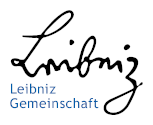- Das Institut
- Forschung
- Diktaturen im 20. Jahrhundert
- Demokratien und ihr historisches Selbstverständnis
- Transformationen in der neuesten Zeitgeschichte
- Internationale und transnationale Beziehungen
- Editionen
- Dissertationsprojekte
- Abgeschlossene Projekte
- Dokumentation Obersalzberg
- Zentrum für Holocaust-Studien
- Berliner Kolleg Kalter Krieg
- Publikationen
- Vierteljahrshefte
- Archiv
- Bibliothek
- Zentrum für Holocaust-Studien
- Aktuelles
- Termine
- Presse
- Neuerscheinungen
- Aus dem Institut
- Themen
- München 1972
- Confronting Decline
- Demokratie. Versprechen - Visionen - Vermessungen.
- Feministin, Pazifistin, Provokateurin
- Der Mauerbau als Audiowalk
- Digitale Zeitgeschichte
- Zeitgeschichte Open
- Der FC Bayern München und der Nationalsozialismus
- Das Deutsche Verkehrswesen
- Zukünfte am Ende des Kalten Krieges
- Von der Reichsbank zur Bundesbank
- Bundeskanzleramt
- Geschichte der Nachhaltigkeit(en)
- Wandel der Arbeit
- Demokratische Kultur und NS-Vergangenheit
- Geschichte der Treuhandanstalt
- Akten zur Auswärtigen Politik
- Dokumentation Obersalzberg
- Edition "Mein Kampf"
- Anonyma - Vom Tagebuch zum Bestseller
- "Man hört, man spricht"
- Newsletter
- Druckansicht
Fellows des Zentrums 2018
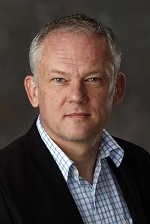
Gerald Steinacher (USA), Associate Professor of History and Hymen Rosenberg Professor of Judaic Studies, University of Nebraska-Lincoln (USA). Projekt: Forgive and Forget? Catholic Responses to Postwar Justice in Germany and Italy 1945–1950. Steinacher studierte Geschichte und Politikwissenschaft in Innsbruck, Trient und New Orleans und arbeitete von 2000-2010 als Zeithistoriker am Südtiroler Landesarchiv (Bozen-Bolzano). Seit 2011 lehrt er an der Universität Nebraska-Lincoln (USA). 2010-2011 war er Joseph A. Schumpeter Research Fellow am Center for European Studies der Harvard University (Boston) und 2015 Research Fellow am International Institute for Holocaust Research in Yad Vashem (Israel). 2016 war Steinacher Gastprofessor an der Universität Passau und im Herbst/Winter 2017 Honorary Fellow am Historischen Kolleg (München).
Gerald Steinacher ist der Autor von vier Büchern und neun Sammelbänden zum italienischen Faschismus und der Geschichte des Nationalsozialismus mit Schwerpunkt Erinnerungskultur und Täterforschung. Sein neues Forschungsprojekt untersucht die Haltung der katholischen Kirchenführung zu den Nürnberger Prozessen und ganz allgemein zur „Entnazifierung“ Deutschlands und der „Entfaschisierung“ (Epurazione) Italiens in den ersten Nachkriegsjahren. Warum standen Kirchenführer in Deutschland, Italien und nicht zuletzt im Vatikan selbst den alliierten Planungen sehr kritisch bis ablehnend gegenüber? Wie wirkte sich das in Worten und Taten aus? Was waren die kirchlichen Alternativen, um mit Schuld und Verantwortung nach Weltkrieg und Holocaust umzugehen?
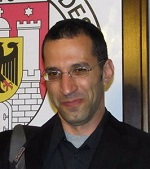
Daniel Uziel arbeitet in Yad Vashem (Jerusalem) und lehrt Geschichte und Politik in der Ben-Gurion Universität. Er befasst sich mit neuerer deutscher Geschichte, Militärgeschichte und Technikgeschichte.
Er hat bisher zwei Bücher veröffentlicht: Eines über die Wehrmachts Propaganda, und eines über die deutsche Luftfahrt im Zweiten Weltkrieg. Das gegenwärtige Forschungsprojekt – "Zwangsarbeit in der deutschen Luftfahrtindustrie" – ist ein erweitertes Kapitel aus dem letzten Buch. Es erforscht die zentrale Rolle der Zwangsarbeit in Deutschlands größte Branche der Rüstungsindustrie im Zweiten Weltkrieg. Insbesondere wurde nach der Veröffentlichung des Buches realisiert, dass der Einsatz jüdischer Zwangsarbeiter mehr Aufmerksamkeit braucht.
Diese Forschung wird hauptsächlich auf deutschen Primärquellen und mehr als 300 Zeitzeugenberichte basieren. Bisher wurden Quellen in den folgenden Archive gesichtet: US National Archives, Archiv des National Air & Space Museums, Bundesarchiv-Berlin, Bundesarchiv-Freiburg, Yad Vashem Archiv usw.
Der Aufenthalt in München ist notwendig, um Quellen in den Archiven des IfZ, des Deutschen Museums, der Gedenkstätte Dachau, und von BMW zu sichten.
Das Forschungsprojekt "Zwangsarbeit in der deutschen Luftfahrtindustrie" versucht zu erklären, wie Zwangsarbeit zu einem zentralen Bestandteil einer "High-tech" Industrie wie der Luftfahrtindustrie wurde, und wie dieses Phänomen die Verfolgung der Juden beeinflusst hat.
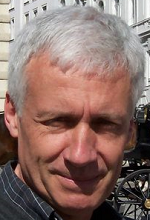
Bob Moore (1954) is Professor of Twentieth Century European History at the University of Sheffield. He has published extensively on the history of Western Europe in the mid twentieth century, including Victims and Survivors: the Nazi Persecution of the Jews in the Netherlands, 1940-1945 (1997); The British Empire and its Italian Prisoners of War 1940-1947 (with Kent Fedorowich 2003) Refugees from Nazi Germany and the Liberal European States (with Frank Caestecker, 2009) and his latest monograph, Survivors: Jewish Self-Help and Rescue in Nazi-Occupied Western Europe was published by Oxford in 2010. He is currently completing work with Johannes Houwink ten Cate (NIOD) on the diary of a Dutch rescuer Het geheime dagboek van Arnold Douwes: Jodenredder/The secret diary of Arnold Douwes: Rescuer to be published in Dutch and English, and writing a monograph on prisoners of war during the Second World War.

Denisa Nešťáková, PhD is a historian at the Department of General History at the Faculty of Arts, Comenius University in Bratislava (Slovakia), where she defended her dissertation thesis titled " `Whoever is not with me is against me.` Arab-Jewish relations during British Mandate for Palestine through the perspective of the German Temple Society" in June 2018. She has previously received Masters degrees in teaching of History and Slovak language and literature at the Comenius University (2012) and in Jewish civilizations at the Hochschule für jüdische Studien in Heidelberg (2016).
Her current post-doctoral project title is, Women and Men in the Labour Camp Sereď, Slovakia (1941-1945). The project aims to analyse different approaches and attitudes of women and men towards various aspects of daily life and events within the camp and their impact on their survival. It will investigate the behavioural principles, social interactions, networks between inmates and camp guards, and among inmates themselves, and explore the agency of the inmates in the camp through comparative gender analysis.
This project does not only offer a comparative analysis of male and female experience, but also responds to research dealing with social structures. The project aims to see inmates not just as passive objects, but as active participants who shaped and influenced the society they were forced to inhabited and challenged its boundaries. By doing, so the project also addresses those Jewish men and women in position of power, and who´s agencies could fit into Primo Levi´s term the “gray zone”. Additionally, by focusing on gender-specific experiences of individuals the aim is to deconstruct the abstract image of a genderless Jewish prisoner/victim which has also appeared in scholarly works as a part of the post-holocaust transmission of the antisemitic vocabulary and perception of former Jewish inmates.
Her academic interests translated into her co-editorship of historical journals, and organizing international workshops and conference. Apart from academic efforts she works on popularization of History in Slovakia. She has received several Slovak and foreign awards and fellowships thanks to which she could conduct and present her research on conferences and workshops in Slovakia, France, Poland, Germany, Israel, United Kingdom, or USA. She received the research scholarship of the DAAD to complete her dissertation with supervision of the Fritz Bauer Institute in Frankfurt.

Mykola Borovyk, Associate Professor of History, Taras Shevchenko National University of Kyiv (Ukraine). Project: (Un)expected Enemies: Local Collaborators in the Jewish Survivors Memory About the Holocaust in Ukraine. The project investigates the memory on the interethnic relations in Ukraine during the Second World War, in particular, the memory of Jewish Holocaust survivors about their persecutors among the local population. Representation of attitudes and behaviour of the local non-Jewish population in the Jewish collective memory of Holocaust is often influenced by some common patterns and stereotypes. Obviously, such stereotypes can be traced back to the real wartime experiences and attitudes.
At the same time, such generalisations hardly reflect the variety of historical experience and are selective by nature. This project aims to understand how the Jewish communities in the USSR and abroad have formed the language for describing the phenomenon of local collaboration, which factors influenced its formation and what was the distinctiveness of a language formed in different social and political contexts. The project is a part and extension of his current habilitation project “Memory about the Second World War as a factor of collective identities in Ukraine”.
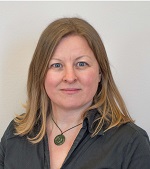
Iwona Guść holds a PhD in film history from the University of Groningen and a MA in Dutch literature and culture from the University of Wroclaw. She has hold postdoctoral fellowships from the Imre Kertész Kolleg in Jena and the Lichtenberg-Kolleg in Göttingen where she participated in one of the leading projects of the institute on “The diaries of Anne Frank: Research—Translations—Critical Edition”. Between 2010 and 2014 she has worked as a postdoc researcher at the NIOD Institute for War, Holocaust and Genocide Studies in Amsterdam and contributed to their project on post-war and contemporary anti-Semitism in a global context.
Her current project on Holocaust diaries examines variety of diaries or memoirs written by child victims of the Holocaust and published during the first decades after the Second World War. It looks at the motives behind the publication of children diaries, and at the reactions these publications provoked. By reconstructing the reception of children diaries in 50s and 60s this research exposes how Holocaust memory took shape in the era before the audiovisual turn (television, film and video-recorded testimonies). It focuses on responses of one group in particular: the so-called “generation 1.5”, c.q. child survivors who by late 50s and beginning of 60s entered the adult life and were from that moment able to actively participate and shape the memory culture.
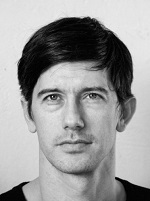
Bert Hoppe hat an der Humboldt-Universität Berlin promoviert und forscht vor allem zu Themen der deutschen und sowjetischen Zeitgeschichte. Zu seinen Büchern zählen "Auf den Trümmern von Königsberg. Kaliningrad 1946-1970" und "In Stalins Gefolgschaft. Moskau und die KPD 1928-1933". Im Rahmen der "Edition Judenverfolgung" hat er die beiden Bände über die besetzen sowjetischen Gebiete bearbeitet (VEJ 7 und 8).
In seinem neuesten Forschungsprojekt untersucht er die Geschichte Kiews unter deutscher Besatzung. Das Projekt zielt darauf ab, eine multiperspektivische Darstellung der verschiedenen Gewalt- und Verbrechenskomplexe in der ukrainischen Hauptstadt im Zweiten Weltkrieg zu schaffen. Neben dem Massaker an der jüdische Bevölkerung in Babij Jar werden u.a. der Massenmord an sowjetischen Kriegsgefangenen in den Durchgangslagern, die Beteiligung der ukrainischen Stadtverwaltung an Verfolgungsmaßnahmen gegen Juden und Kommunisten sowie das Vorgehen der Besatzer gegen ukrainische Nationalisten und die Hungersnot von 1942/43 analysiert und auf mögliche Interdependenzen hin untersucht. Zu diesem Zweck verfolgt das Vorhaben einen erfahrungsgeschichtlichen Ansatz. Anhand von Einzelschicksalen unterschiedlichster Akteure soll versucht werden, deren Handlungsspielräume auszuloten und zugleich die Rollenzuschreibungen zu hinterfragen.

Gelinada Grinchenko, historian, PhD, Professor of History at the Department of Ukrainian Studies (Faculty of Philosophy, V. N. Karazin National University, Kharkiv, Ukraine), Head of the Ukrainian Oral History Association, Editor-in-Chief of the Ukrainian based academic peer-reviewed journal Ukraina Moderna. Her main areas of research are: Oral History, the history and memory of World War II, Holocaust Studies, Memory Studies, Conflict Studies, Border and Region Studies. She is the co-editor and co-author of the Reclaiming the Personal: Oral History in Post-Socialist Europe (University of Toronto Press, 2015) and Traitors, Collaborators, and Deserters in Contemporary European Politics of Memory: Formulas of Betrayal (Palgrave Macmillan Memory Studies, 2018).
Her current project title is War, People, and Catastrophe in the Oral Histories of Survivors and Witnesses. The project is focused on the analysis of the specificity of recalling the Holocaust in oral histories of survivors and witnesses from Ukraine. For argumentation this specificity comparison with oral narratives of West and Central European Holocaust witnesses and survivors will be made. The main context (or perspective) of this analysis is the studying of the dynamics of the reception of the Holocaust in Ukrainian memory culture from 1991 to 2014 as a part of all-European post-Cold war transformations.
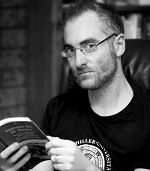
Mathew Turner is an academic historian in the School of Humanities and Social Sciences, Faculty of Arts and Education, at Deakin University, Australia. He has taught various undergraduate units including the Holocaust and Global Twentieth Century History. He is also a member of the University’s Contemporary Histories Research Group. A former German Academic Exchange Service (DAAD) research scholar, his main research interests are the Holocaust and Nazi Germany, German antisemitism and responses to Holocaust denial. He has presented at several international conferences, including the 2017 International Association of Genocide Scholars Conference held in Brisbane, the 2016 German Studies Association Annual Conference in San Diego, and the 2014 Sechstes Doktoranden-Seminar des Fritz Bauer Instituts in Frankfurt. His book, titled Historians at the Frankfurt Auschwitz Trial: their Role as Expert Witnesses, will be published by I.B.Tauris in 2018.
Project title: Holocaust Erklärungsarbeit and German Historians, 1960-2000: ‘Hyperaffirmation’ or Historicisation?
His project focuses on the concept of West German historians as Holocaust educators, a role they undertook within research institutes, universities, as independent scholars and public intellectuals, and, critically, as advisors to state and federal education agencies. The research is focussed on a three-part interaction between: an established Federal Republic and its (younger) citizens’ renewed appetite for confrontation of the past from the 1960s onwards; fears of rising antisemitism and right-wing extremism and a perceived social and political need to counter such forces through public education of the Holocaust; and a maturing historical profession increasingly able to meet such needs. In their various roles, historians taught history, wrote scholarship, gave public lectures, testified in Nazi crimes trials, participated in debates, and provided advice on Holocaust education to government. The effectiveness of these engagements – in acting to combat antisemitism and historical distortions, in transmitting historical knowledge effectively, and in positively influencing the drive of German historical scholarship on the Holocaust – will be scrutinised. The project aims to strike a balance between the tendency of some contemporaries to condemn West German historians for failing to confront and detail the worst of Nazi crimes at the earliest opportunity, and to unreservedly applaud the didactic role of compulsory Holocaust education in combating antisemitism and raising historical awareness of Nazi crimes.
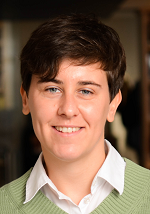
Alicja Podbielska is a PhD Candidate at the Strassler Center for Holocaust and Genocide Studies at Clark University. In her doctoral dissertation, The Memory of Rescue in Poland, she examines when, how, and why Polish Holocaust rescuers were officially designated national heroes. Prior to her doctoral studies, Podbielska worked at the Anne Frank House in Amsterdam and at the Polin Museum of the History of Polish Jews in Warsaw. She earned a MA in literary studies from Adam Mickiewicz University in Poznań, Poland. Focusing on gender and the Holocaust, she wrote her thesis on memoirs about concentration camps. She received fellowships from European Holocaust Research Infrastructure, Wiesenthal Institute for Holocaust Studies in Vienna, Yad Vashem, and United States Holocaust Memorial Museum in Washington, D.C. Her research interests include Polish-Jewish relations, collective memory, public history, and Holocaust literature.

Philipp Dinkelaker, M.A. studierte Neue Geschichte, Alte Geschichte und Philosophie in Berlin. Seine 2017 als Monographie im Metropol Verlag erschienene Magisterarbeit "Das Sammellager in der Synagoge Levetzowstraße 1941/1942" widmet sich einem bisher unerforschten Tatort der Shoah in Berlin und dessen Wahrnehmbarkeit im Alltag der damaligen Reichshauptstadt. Philipp Dinkelaker verfasst am Zentrum für Antisemitismusforschung (ZfA) der Technischen Universität Berlin (TU) bei Prof. Dr. Stefanie Schüler-Springorum eine Dissertation zum Umgang mit vermeintlicher jüdischer Kollaboration im post-nationalsozialistischen Deutschland im Spiegel von Ehrengerichts-, Sozialgerichts-, Entschädigungs- und Strafverfahren gegen Überlebende der Shoah in beiden deutschen Nachkriegsstaaten. Er engagierte sich im Arbeitskreis “Fragt uns, wir sind die Letzten", der speziell für Jugendliche oder bisher wenig mit NS-Geschichte in Berührung gekommene Leser*innen aufbereitete Interviews mit Überlebenden der NS-Verfolgung und/oder Widerstandskämpfer*innen publiziert. Nach seinem Aufenthalt als Junior Fellow am Zentrum für Holocaust-Studien des Instituts für Zeitgeschichte (IfZ) in München wird Philipp Dinkelaker 2018 als EHRI Fellow in Yad Vashem in Jerusalem recherchieren.
EHRI Fellows 2018

Anne-Lise Bobeldijk is a PhD candidate at the NIOD Institute for War, Holocaust and Genocide Studies and the University of Amsterdam, where she currently works on her research project “Competing narratives of victimhood in the age of transitional justice: The history and memory of the terrorscape Maly Trostenets”.
During her EHRI Fellowship at the Vienna Wiesenthal Institute and the Center for Holocaust Studies at the Institut für Zeitgeschichte, she will conduct research on the post-war trials concerning Maly Trostenets.
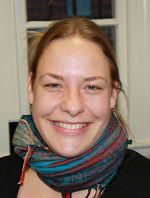
Franziska Anna Karpinski, PhD Candidate at Loughborough University (UK)
She has a B.A. in American Studies and Modern European History from the Free University Berlin (2011), and an M.A. in Holocaust and Genocide Studies from the University of Amsterdam (2012, cum laude).
Her main research interests lie with perpetrators of mass political violence. Her current research is on peer dynamics, group cohesion, and radicalization of perpetrators of the Holocaust.
Since September 2014, she is a Ph.D. student in Modern History at Loughborough University, UK; the title of her thesis is “In Defense of Honor and Masculinity – In-Group Pressure, Violence, and Punishment in the Third Reich´s Elite, 1933-1945.”
She spoke at various conferences in the last years, such as at the universities of Amsterdam, Siena, Helsinki, and Geneva, among other topics, on “Suicide of High-Ranking Nazis as Mirrored in the Assessment and Reaction of the Regime´s Leadership”.
In March 2016, the co-authored article, “Sexual Violence in the Nazi Genocide: Gender, Law, and Ideology” was published in an edited volume on genocide in comparative perspective (Amsterdam UP).
Since 2012, she participated in various academic summer programs in Rwanda (“Together Against Impunity in the Great Lakes Region” 2012), Poland & the USA (Auschwitz Jewish Center Fellowship 2014), and Israel (Yad Vashem Summer School 2014) – all with a research focus on mass political violence and genocide.
In October 2016, she was be a fellow at the German Historical Institute in Moscow to do research at the Former Special Archives (2 months) and in the summer of 2017, she will be an EHRI fellow in Munich and Bad Arolsen to do further research at the respective archives in connection with her doctoral project.

Anton Hruboň is an assistant profesor at the Department of European Cultural Studies at the Faculty of Arts, Matej Bel University in Banská Bystrica (Slovakia). In his research he focuses on political and cultural history of Slovakia, Czechoslovakia and Central Europe in 1918 – 1945 and on comparative study of European fascism and right-wing authoritarianism. Anton Hruboň has published 6 monographs, over 60 papers in Slovakia, Czech Republic, Poland, Romania, Serbia, Belarus and Russian Federation and more than 70 articles of popularization character. As a principal investigator and member of research teams he has been involved in five VEGA grants supported by Slovak Ministry of Education, Science, Research and Sport; he was a principal investigator of international scientific-educational project of the Visegrad Fund ("Visegrad University Studies Grant" scheme) and a holder of several scholarships and fellowships at universities and research institutes outside Slovakia (Charles University in Prague, Ján Hus Foundation in Brno, Slovak Historical Institute in Rome, Bundesarchiv Berlin).
Hruboň´s contemporary research focuses on life and career of “architect of genocide” of Slovak Jews Alexander Mach, a wartime minister of interior, deputy prime minister of the Slovak State, head of the Propaganda Office and head commander of the Hlinka Guard. In German archives and libraries Anton Hruboň is completing materials regarding Mach´s involvement in the “Final Solution” and regarding Mach´s role in the wartime Slovak politics as reflected by the Nazi elites and by the Sicherheitsdienst.
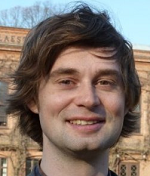
Lennert Savenije (the Netherlands), post-doctoral researcher Radboud University Nijmegen, ‘Jewish working camps in the Netherlands, under the supervision of the Nederlandsche Heidemaatschappij/Dutch Heathlandcompany’.
This post-doctoral research project concerns the so called Jewish camps in the Netherlands between January and October 1942. These working camps were original unemployment relief camps under the supervison of the Nederlandsche Heidemaatschappij, an ingeneering firm aimed at cultivating and improving heath and marshland for agricultural or recreational purposes. At the beginning of 1942, Dutch Jewish men were brought to the camps. They worked there, untill they were deported alongside with their families in the autumn of 1942.
These ‘Jewish working camps’ have not yet been researched extensively. Why were they set up? What was the aim of the operation? Was it part of the broader programme of excluding Jewish citizens from Dutch society? How did the managers and workers experience the situation? And is this Dutch case comparable with other cases in occupied Europe?
Lennert Savenije (1985) studied in Nijmegen and Paris and obtained his PhD in 2018. He works as a post-doctoral researcher at Radboud University.
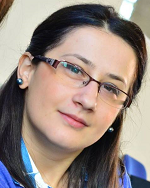
Anca Filipovici is a researcher at the Romanian Institute for Research on National Minorities, Cluj, Romania. She holds a PhD in history (2013) at the Babeş-Bolyai University of Cluj, on a topic related to education and local culture in northern Moldavia. Her currently research focuses on the history of Jews in Romania, interethnic relations in interwar Bukovina, educational policies and the construction of national identity.
During her EHRI Fellowship at the the Center for Holocaust Studies at the Institute for Contemporary History in Munich, she will conduct research on the issue of anti-Semitism as act of disobedience in high schools from interwar Romania. The project intends to analyze youth anti-Semitic acts performed by contesting the diversity of the school medium through violence, and by challenging the above-imposed passivity through political engagement and radicalization. The archive and the library of the Center for Holocaust Studies hold a comprehensive collection on youth issues and far right movements that will broaden the national perspective, providing a thorough insight on youth policies in interwar Europe.


